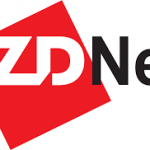California Kicks Off Cap-and-Trade Program to Auction Carbon Emission Credits
SAN FRANCISCO, Calif., 14 November 2012 — Today, California kicked off the first auction of their cap-and-trade system for greenhouse gases under the California Air Resources Board (CARB) new cap-and-trade program. This is the first large-scale carbon market in the United States, and is expected to be the second largest carbon market in the world, after the European Union.
“Many may agree, especially with the buzz around climate change lately, that this cap-and-trade program is an attempt toward reaching an admirable goal of reducing California’s greenhouse gas emissions,” said Neno Duplan, President and CEO of Locus Technologies. “However, Locus also recognizes the challenges that face businesses dealing with this auction, and stands at the ready to assist them in minimizing the costs of complying with the cap-and-trade regulation.”
Locus has been involved in the development of California’s carbon market from nearly the beginning. Locus was one of the first accredited verification bodies for greenhouse gas emissions, and has years of expertise in reporting greenhouse gas data. Locus staff have also been certified as carbon offset verifiers under CARB. From experience, Locus knows that participants in the cap-and-trade program have many options available to them in how they calculate and report their greenhouse gas data, and how they select those options can have significant effects on the financial impact of the cap-and-trade program. Some of Locus’ customers have saved thousands by making simple changes to their greenhouse gas reporting methods, as recommended by Locus’ technical experts or by using Locus’ Cloud-based GHG software.
The outcome of today’s auction will likely determine the future of greenhouse gas policy in the United States. California’s program already includes the concept of potential “linkage” with other carbon markets, which means that carbon credits could be transferred between other cap-and-trade programs. This essentially allows for expansion of this market to other states or jurisdictions outside the U.S.



